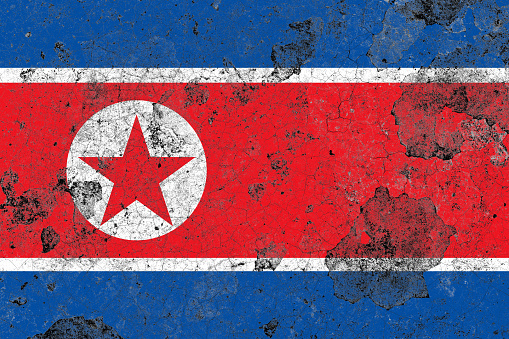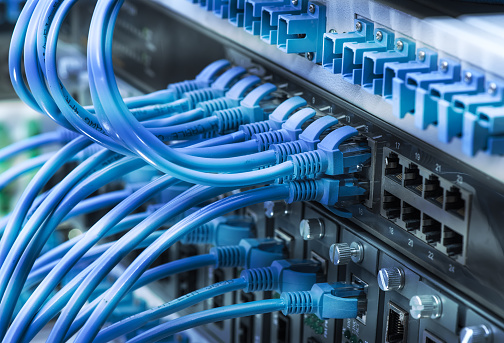The North Korean Economy Underwent a Massive Transformation
The North Korean economy is undergoing a massive transformation. Trade with China declined by more than 80% in 2017. Economic transformations such as Marketization and Industrialization were dominant, with the informal privatization of productive assets a common feature. However, the country was not able to import goods, which hindered marketization.
Trade with China declined more than 80% in 2017
China’s trade with North Korea is helping Pyongyang evade the United Nations sanctions that are aimed at forcing the regime to negotiate. In 2017, a panel of U.N. experts found that Pyongyang continued to export prohibited commodities, earning $270 million from such activities. China’s trade with North Korea is a major part of this, with imports of steel and iron from the regime topping $37 million.
The prolonged closure of North Korea’s borders has negatively affected trade with China. The country’s government has struggled to promote marketization, as the decreased flow of goods from China has hampered its efforts to develop domestic manufacturing. As a result, the lack of raw materials has led to slowdowns in factories and a drop in worker wages.
The trade data from Friday’s report indicate that relations between North Korea and Beijing are cooling. While China is North Korea’s largest trading partner and major source of aid, the two countries have grown more distant since North Korea first began developing nuclear weapons in 2006. Beijing has also joined the international community in supporting UN sanctions against the North Korean regime.
China’s response to the situation has been mixed. On one hand, Beijing has criticized U.S. sanctions against North Korea, and it has also criticised China’s support of sanctions against Pyongyang. On the other hand, China has argued that China is not able to pressure Pyongyang to change its policy. Beijing’s policy has been to maintain the regime’s economic stability.
Industrialization dominated
Industrialization dominated the north korean economy in its early years. Given the damage caused by the Korean War, this process was not an easy one. However, the North Korean government opted for the socialist model of governance and central planning and adopted the ideology of juche to drive industrialization. This approach focused on the development of heavy industry such as steel and iron. It also encouraged the development of machine tool and cement sectors.
The economic growth rate in North Korea has been consistently higher than the national average in recent decades, reaching 2.2% per year from 2000 to 2005. However, the country still lags behind the other developed countries in terms of industrial development. In addition, South Korea needs to continue to provide a more conducive business environment to promote innovation.
Although the North Korean government has been trying to modernize its economy, reliable information is still lacking. The government releases inflated production figures, which makes it difficult to draw conclusions about the country’s economic health. However, the nation has made significant efforts to convert its agrarian economy into a modern industry, and their efforts have been partially successful.
China is the dominant trading partner for North Korea. The country has increased its mineral exports to China by 300 percent. The building boom was probably funded by increased mineral exports to China. The country’s economy may soon become dependent on Chinese products, but it may also begin to diversify its trade with the West.
Marketization led to informal privatization of productive assets
North Korea’s economy is distorted by a lack of market mechanisms and a centrally planned system of allocation of resources. The resulting lack of price signals has made energy and other resources inefficiently used. As a result, the power plant is at a loss to purchase the inputs it needs and has to give away its surplus power.
The North Korean economy is weak and vulnerable, but the country is undergoing structural change. As UN sanctions have tightened, North Korean economic activity has shifted toward production, leading to an increase in productivity. With the spread of market activities and incentives to act in one’s own self-interest, the system of central planning is weakening. As aid and foreign trade decreases, the country is becoming increasingly self-reliant, even though the state still controls around 50% of its economy.
The reformed North Korea could become a net exporter of agricultural products to the South. While both labor and capital markets would be ununified, the country could gain comparative advantage in fruits, vegetables, and dairy and meat products. While both countries would remain global net importers of food, the latter could become the net exporter of agricultural goods to the South.
North Korea is a partly industrialized nation with a highly educated workforce and a substantial capital stock. It also has extensive natural resources, although they are poorly utilized, and a modest infrastructure. However, the country’s economic system is a socialist one, denying private ownership of the means of production. Since the 1950s, the Korean Workers’ Party has tried to implement a centrally planned economy that involves money and markets.
Lack of imports hindered marketization
The North Korean economy experienced a difficult year in 2021, when the country closed its borders to the world. Although the food production was higher than expected, market prices indicated that the country faced an extremely volatile food supply. Although the country did avoid major typhoons that year, the country faced an extremely limited supply of food.
The lack of imports has been a major challenge for the North Korean economy, which is made up of a third service sector. The country’s lack of imports has resulted in a drop of 17.3 percent in trade volume. The country also has a porous land border with China, which has limited the flow of goods.
The lack of imports has prevented the North Korean economy from achieving full marketization, which is essential for a successful economic development. In the 1990s, famine paralyzed many of the country’s socialist economic institutions, and the government adopted Kim Jong-il’s “Songun” policy, which involves deploying the military to direct the economy and construction projects. Since then, North Korea’s economy has become increasingly isolated from the rest of the world. As a result, the North Korean industrial sector is not competitive with other countries. The result is chronic inefficiency for domestic firms, as they are shielded from both domestic and international competition. Furthermore, the lack of imports limits the size of the market that North Korean producers can access, and thus cannot benefit from economies of scale.
The North Korean automotive industry has a diverse portfolio of vehicles. Its range of vehicles includes luxury cars, SUVs, minicars, coach buses, trolleybuses, and off-road trucks.
Kim Jong-un’s economic reforms
Kim Jong-un seems to have embraced the idea of marketization as a necessary part of North Korean economic reform. Between 2012 and 2016, marketization in North Korea increased significantly, even before economic sanctions imposed by the UNSC. While the development of marketization is a welcomed step forward, the dictatorship’s strong emphasis on state control is troubling. Ultimately, this coexistence could lead to full-scale conflict if the two systems continue to polarize.
Kim Jong-Un’s economic reforms in North Korea are not a panacea, but rather a process that requires careful planning and analysis. Kim’s journals illustrate how he works to come up with new economic policies. First, new ideas are tested in various units and then formulated into viable plans. Once identified, Kim advocates for the new policies in detail, explaining their rationale and the best ways to implement them.
The first step towards economic growth in North Korea was to reintroduce the currency system. The currency reform was an almost complete failure when Kim was inaugurated, and prices soared. After the collapse of the Leninist model, the country moved to an unstable but mostly market-dominated economy. As a result, Kim Jong-un has been introducing economic reforms similar to those introduced by Deng Xiaoping in China in the 1980s.
Despite the success of the Trump-Kim summit, Kim Jong-un has not yet been able to revive the economy. In fact, North Korea has suffered setbacks due to sanctions, natural disasters, and internal retrenchment. In spite of this, the country’s nuclear program and missile program have advanced.
Isolation from rest of world
North Korea is isolated from the rest of the world and the global economy. The isolation has a negative impact on the country. Pyongyang is not able to produce goods that the rest of the world needs. Because of this, it is forced to engage in black market activities. The country has been suspected of manufacturing counterfeit $100 bills and narcotics. It has also used world-class hackers to extort money through cyber-blackmail schemes and currency manipulations. Furthermore, the isolation of North Korea from the rest of the world makes it more difficult for the government to control its population.
The economic isolation of North Korea is one of the most severe challenges facing the country. While Pyongyang has pockets of modernity, most of its economy is dominated by Soviet-style monuments and centralized economic planning. In addition, the country’s economy is largely geared towards military development and lacks the freedoms required for a market economy.
North Korea’s economy has suffered greatly under U.N. and U.S. sanctions, and has also halted aid from outside countries. The country’s economy shrank by 4.1% in 2018 and is only expected to grow by 0.4% in 2019 due to improved weather and increased crop yields. However, there are few reliable estimates of North Korean GDP because it is difficult to obtain accurate figures. It is also difficult to measure inflation, since households in different sectors often pay different prices for the same commodities.
The isolation of North Korea’s economy from the rest of the world has a negative impact on the country’s ability to develop a market economy. In addition to economic deprivation, the regime’s political system has also emphasized nationalism and a sense of nationalism. This has resulted in draconian security measures and violations of human rights.



